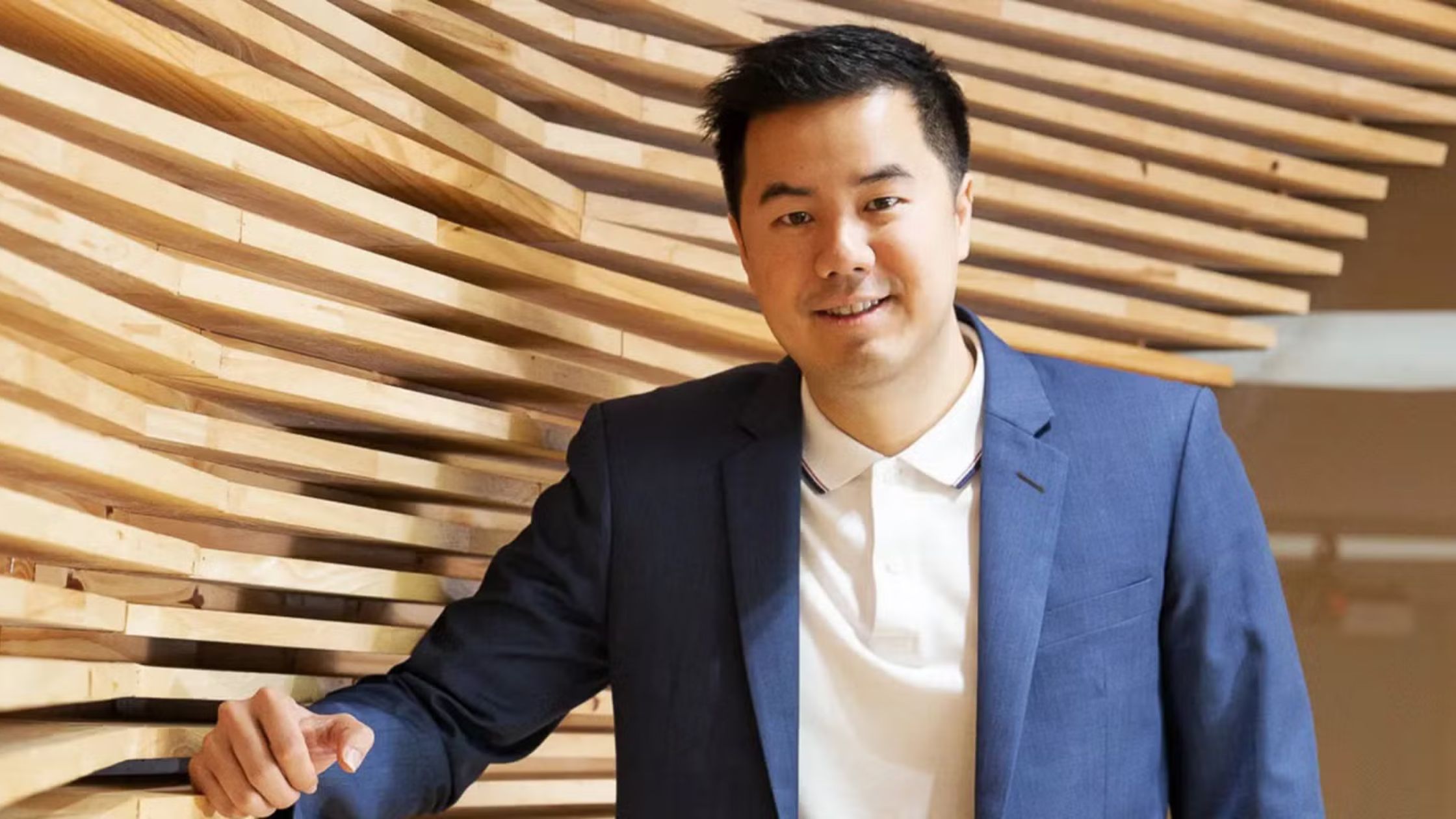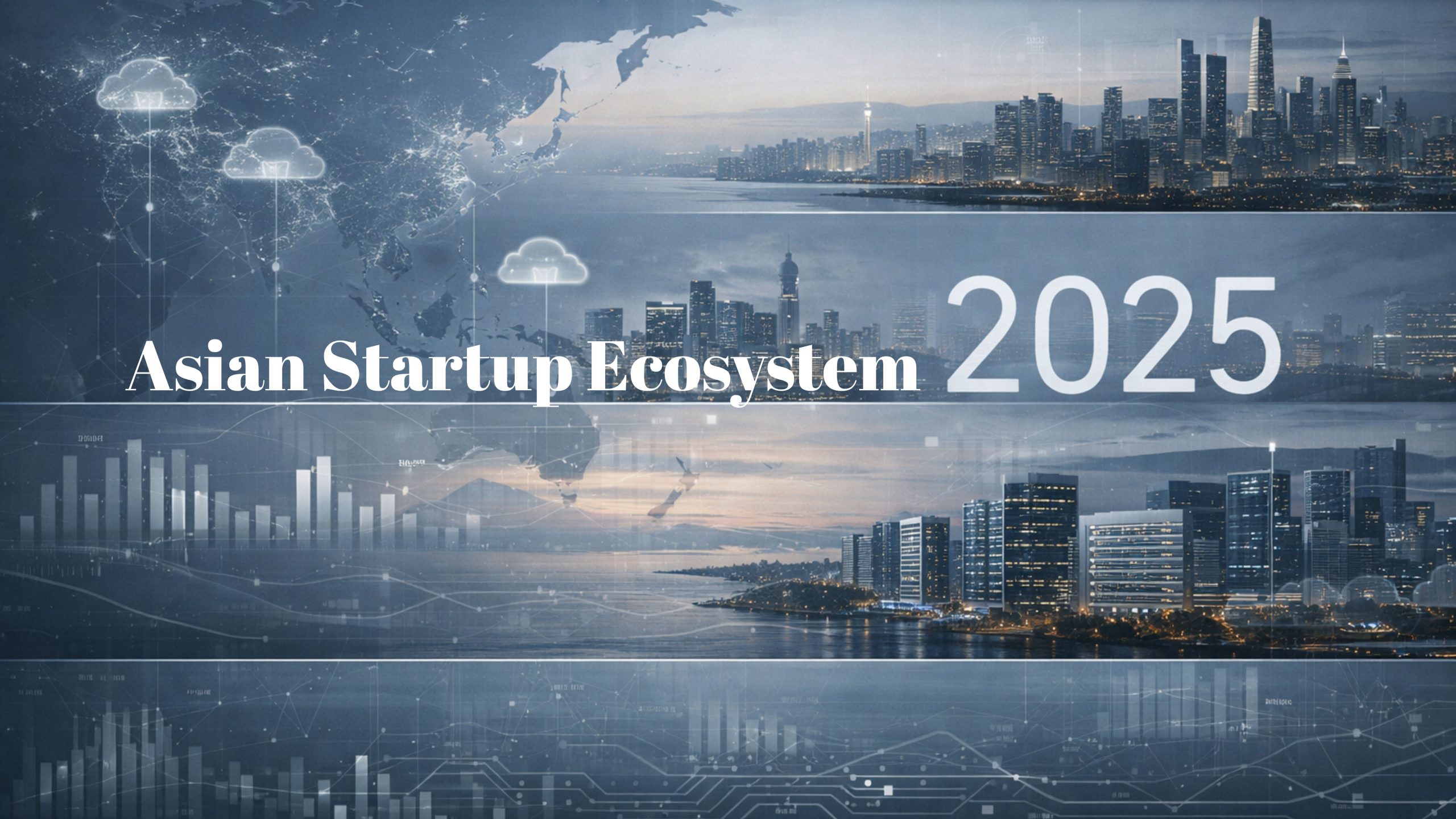AsiaTechDaily – Asia's Leading Tech and Startup Media Platform

SeaX Ventures’ Dr. Supachai Kid Parchariyanon: Navigating U.S.–China Tensions and Betting Big on Southeast Asia
The 90-day tariff suspension between the U.S. and China may have calmed markets temporarily, but it hasn’t calmed investor nerves. Beneath the surface of easing trade restrictions lies a deeper truth: geopolitical volatility is now a permanent feature of the global economy.
As global markets brace for another unexpected turn, investors are keeping a close eye on Southeast Asia. Just last week, Indonesia secured a landmark trade agreement with the U.S., reducing retaliatory tariffs from 32% to 19% and triggering a surge in its stock index.
Yet despite this win, the broader picture remains unsettled: U.S. tariffs on China have been temporarily slashed from 145% to 30% for 90 days, but as markets cheered, analysts warned this is merely a pause, not a resolution.
With global trade still in flux and geopolitical risk elevated, Dr. Supachai Kid Parchariyanon, founder of Thailand‑based SeaX Ventures, argues that Southeast Asia isn’t just weathering the storm — it’s gearing up to lead the charge.
With the recent announcement of a 90‑day tariff truce between the U.S. and China, the world is carefully watching whether this signals a détente or simply a strategic pause. For Dr. Kid, founder and Managing Partner at SeaX Ventures, the answer is clear: this is not a turning point, but a reminder of enduring uncertainty—and an opportunity for Southeast Asia.
- How do you interpret the recent U.S.–China 90-day tariff suspension? What does this signal to global investors?
These trade tensions have highlighted the importance of diversification and resilience. When the tariffs were first announced, we saw a global rebalancing of supply chains and investment flows. The tariff suspension isn’t changing that either. If anything, it’s signalling to global investors that uncertainty remains the norm, further emphasizing the need for strong, diverse and resilient companies.
- In what ways are ongoing trade tensions reshaping how VCs approach international investments, particularly in DeepTech and climate-related sectors?
Ongoing trade tensions aren’t changing the core criteria for investors. They’re still prioritizing bold founders, strong technology, and scalable solutions. Now there’s a new layer of analysis; one where geo-strategic resilience is a high priority. VCs are now asking tougher questions: Can this company withstand supply shocks? Is their supply chain diversified beyond China? Can they operate across multiple geographies or shift markets if needed?
Now, startups need to have an answer to these kinds of questions–alongside a playbook for trade volatility. These considerations are especially critical for DeepTech and climate-related sectors where scale and infrastructure are even more important. It’s no longer just about the tech for investors; they’re looking for operational flexibility and geopolitical fit.
- Do you see this truce as a real turning point or just a temporary relief? How do you plan around that uncertainty?
I see the 90-day truce as a temporary relief, not a true turning point. It’s a pause, not a pivot. From an investor’s perspective, the structural tensions between the U.S. and China aren’t going away anytime soon, and, as I mentioned earlier, that means operating under uncertainty remains the norm.
At SeaX, we focus on startups that have regional strength, portfolio resilience, and strong communication. We don’t wait for clarity of the situation; we invest in agility and the ability for a company to pivot quickly. Our portfolio companies are geo-resilient and know how to navigate volatility because that’s the environment they’re scaling in.
More importantly, we’re not reacting to trade tensions; we’re leveraging them. Southeast Asia is increasingly positioned as both a manufacturing and innovation hub. Whether the truce holds or not, the long-term shift is already underway. We’re investing in founders who can thrive in this new normal, and helping them scale with global partners who see the region as a growth engine.
- Why are VCs like SeaX Ventures rethinking their exposure to U.S.–China geopolitical risks in 2025? What adjustments are being made?
VCs like SeaX Ventures are rethinking exposure to U.S.–China geopolitical risks in 2025 because the landscape has permanently changed. These aren’t just cyclical tensions; they represent a structural shift in how global power, trade, and technology intersect. So instead of pulling back, VCs are broadening our lens.
Instead of pulling back, we’re broadening our lens. We’re more strategic in how we evaluate investment opportunities in the U.S. and China. It’s why having the answers to those questions on geo-strategic resilience, like “Can this company operate across multiple geographies? Is it resilient to regulatory shifts? Can it create a real impact in Southeast Asia?” are so vital for startups looking for global investors now.
Our investment in Qvin, a U.S.-based medtech company, is a great example. They have FDA clearance, but we helped them access clinical trials in Asia, enabling them to scale globally with SEA as a key growth engine. That’s the type of cross-border value we bring.
- How is Southeast Asia positioned in light of this pause in U.S.–China tensions? Are investors still bullish on the “China+1” narrative?
Southeast Asia has benefited immensely from these tensions from the beginning. The region is no longer just a backup plan or manufacturing alternative; it’s becoming the front line of innovation and production. The pause in tensions isn’t slowing the momentum either, but reinforcing it.
Investors are still very bullish on the “China+1” narrative, and for good reason. What started as a risk mitigation strategy has become a strategic growth move. We’re seeing global brands double down on their Southeast Asia presence, not just to diversify, but to tap into real innovation.
The region has proven it can deliver on the innovation front, from talent to infrastructure to policy alignment. From our vantage point at SeaX, we’re seeing record FDI flows (over $235 billion in 2024), strong startup activity in DeepTech and climate, and growing demand from global corporations looking to plug into the ecosystem.
- Are you seeing more startups in the region pivot toward filling gaps in global supply chains? If so, in which sectors?
Absolutely. The most active sectors include:
- Manufacturing tech, robotics, and automation startups are in high demand to modernize new facilities.
- Logistics and supply chain management solutions are critical as companies reroute global operations.
- Localized B2B suppliers—from components to packaging—are seeing huge demand.
- Could this 90-day truce delay or reduce foreign capital flowing into Southeast Asia that was previously triggered by diversification?
The 90-day truce isn’t likely to slow capital flowing into Southeast Asia. Most investors see it as a tactical pause, not a signal to reverse course. Diversification away from China was never just about tariffs. It’s about long-term resilience. The momentum behind Southeast Asia as a strategic market is already in motion, and short-term diplomacy won’t undo that shift. If anything, this pause gives investors more time to deepen their presence in the region.
- As managing partner at SeaX Ventures, how are you balancing global exposure with regional opportunity in your portfolio today?
At SeaX Ventures, we’re not choosing regional opportunity or global exposure; we’re integrating both. We’re supporting founders who are building solutions that can scale globally and investing in the frontier science-backed technologies they bring.
We actively co-invest with global funds and help startups localize in SEA markets—whether that’s a U.S. medtech company running clinical trials in Thailand or a robotics startup scaling across Vietnam and Indonesia. Our portfolio is designed to be geo-resilient, with cross-border flexibility built in from day one.
- What advice would you give to Southeast Asian founders trying to attract global investors amid ongoing trade uncertainties?
Focus on resilience, show traction early, and don’t wait for perfect conditions. Global investors want to see that you can navigate uncertainty and still deliver. Build flexibility into your supply chain and market strategy–but also, take the leap. Even if the path is unconventional, trust your instincts and grow through the risks you take. That’s what sets standout founders apart at this moment.
- What metrics or qualities do you find most predictive of breakout success among startups in this climate?
In this climate, the most predictive qualities of breakout success are speed, adaptability, and proof. Startups that can show real traction–whether it’s early revenue, pilot wins, or strong customer validation–stand out fast. But it’s not just about numbers.
We also look for founders who can navigate volatility. Those with geo-resilient operations, flexible supply chains, and a clear strategy for scaling across markets are the ones that are going to be the most successful. Execution matters more than ever. The startups breaking through now are the ones solving big problems and moving with urgency.
Founded as Southeast Asia Exponential Ventures, SeaX launched its $60 million Fund II in April 2022, focusing on DeepTech across AI, biotech, robotics, blockchain and more. In March 2025, the firm unveiled SeaX Zero, a climate-oriented vehicle with an initial USD 6 million to deploy into early-stage companies—from fusion energy (like Type One Energy) to cultivated protein firms such as Hoxton Farms and Bluu Seafood. These investments align with SeaX’s dual impact goals: reducing global carbon emissions while driving SEA economic growth.
For Dr. Kid, the trade truce isn’t a reset button—it’s a mirror. It reflects global uncertainty as a permanent backdrop and highlights Southeast Asia as both a refuge and a launchpad. As he sees it: those startups that build for resilience, act with urgency, and scale across markets are the ones poised to lead global innovation—in any geopolitical climate.



